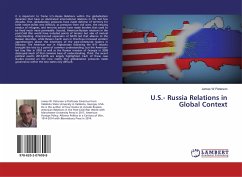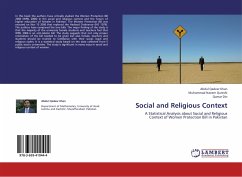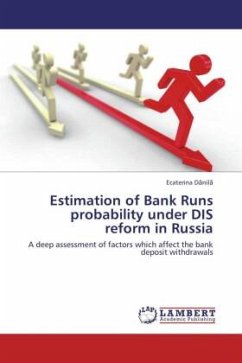
U.S.- Russia Relations in Global Context
Versandkostenfrei!
Versandfertig in 6-10 Tagen
16,99 €
inkl. MwSt.

PAYBACK Punkte
8 °P sammeln!
It is important to frame U.S.-Russia Relations within the globalization dynamics that have so dominated international relations in the last few decades. First, globalization pressures have made defense of territory for both nation-states very difficult, as pressures from civil wars, the ensuing exodus of refugees, and terrorist actions have made borders that used to be fixed much more permeable. Second, American-Russian relations in the post-Cold War world have included points of tension but also of mutual understanding. American-led expansion of NATO led that alliance to the Russian doorstep,...
It is important to frame U.S.-Russia Relations within the globalization dynamics that have so dominated international relations in the last few decades. First, globalization pressures have made defense of territory for both nation-states very difficult, as pressures from civil wars, the ensuing exodus of refugees, and terrorist actions have made borders that used to be fixed much more permeable. Second, American-Russian relations in the post-Cold War world have included points of tension but also of mutual understanding. American-led expansion of NATO led that alliance to the Russian doorstep, while Russia's harsh wars in Chechnya increased western apprehensions about the intentions of the post-communist leaders in Moscow. The American war in Afghanistan following the 9/11 attacks brought the two to a point of common understanding, but the American-led Iraq War in 2003 as well as the Russian invasion of Georgia in 2008 destroyed much of that common base of understanding. Third, the recent political events 2014-2016 are largely highlighted. Each of these case studies pivoted on the new reality that globalization pressures made governance within the two states very difficult.












